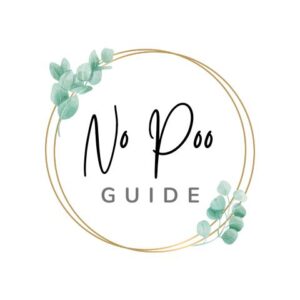On the surface, hair washing with natural products seems a great idea, but is No Poo environmentally friendly?
There has been a huge rise in the number of people moving away from traditional shampoos, to using more natural products to keep their hair clean and healthy. But is this cleaner for our planet too?
No Poo hair washing means removing traditional shampoos from our hair care regime. Natural products such as baking soda, apple cider vinegar, soapnuts, and other natural alternatives are used instead. Silicons and sulfates are no longer required, so No Poo can be seen as a more environmentally friendly approach.
Keep reading to find out how being No Poo can help the environment, not only your hair.
Is No Poo Environmentally Friendly?
Reducing our impact on the environment is becoming increasingly important as climate change hits the headlines more frequently.
Going No Poo to remove the chemicals from our hair care regime, and keep our hair healthy in a natural way must surely help the environment too? Let’s investigate.
The No Poo movement rejects products that contain sulfates and silicon, amongst others.
Natural products are used to keep hair clean and healthy, including these firm favorites:
- Aloe Vera
- Reetha
- Bentonite Clay
No Poo is often be thought of as environmentally friendly, due to the following reasons:
1. Fewer Man Made Chemicals
Fewer chemicals end up in the environment.
2. Less Chemical Production
Silicons, sulfates, parabens, etc are not used in the No Poo regime, so demand for them is reduced leading to reduced production.
3. Fewer Plastic Containers To Landfill
As traditional shampoos are rejected the need to produce plastic shampoo and conditioner bottles is also reduced. Therefore, fewer plastic bottles end up in landfill sites.
4. Less Plastic In The Oceans
There has been an increase in natural products being used to keep hair clean.
This is great news since it means that the minuscule bits of plastic included in shampoo products to scrub hair clean are no longer being washed down the drains.
The reason this is beneficial to the environment is that the drains lead into the watercourse, which in turn lead to our oceans.
5. Fewer Emissions
From reduced production to reduced shopping journeys, the emissions linked to the manufacture and use of traditional shampoos fall substantially when consumers move to No Poo products.
Environmental Downsides Of No Poo
Although on the surface it may seem that No Poo is the most environmentally friendly way of keeping your hair clean, there are some points to note:
Non-Domestic Products
Reetha (soapnuts) need to be imported, so can end up having a large carbon footprint in terms of air miles.
Packaging
Some No Poo commercial shampoos still use traditional plastic packaging.
No Poo Recipes
Whilst we may reduce packaging related to traditional shampoos, the household products we use will all still have packaging. This, unless recyclable, will end up in a waste site.
Conclusion
No Poo can be environmentally friendly if care is taken to use locally produced products and those which have packaging that is recyclable.
If No Poo products are manufactured internationally then the carbon footprint from shipping will make the change from traditional shampoos on environmental grounds moot.
